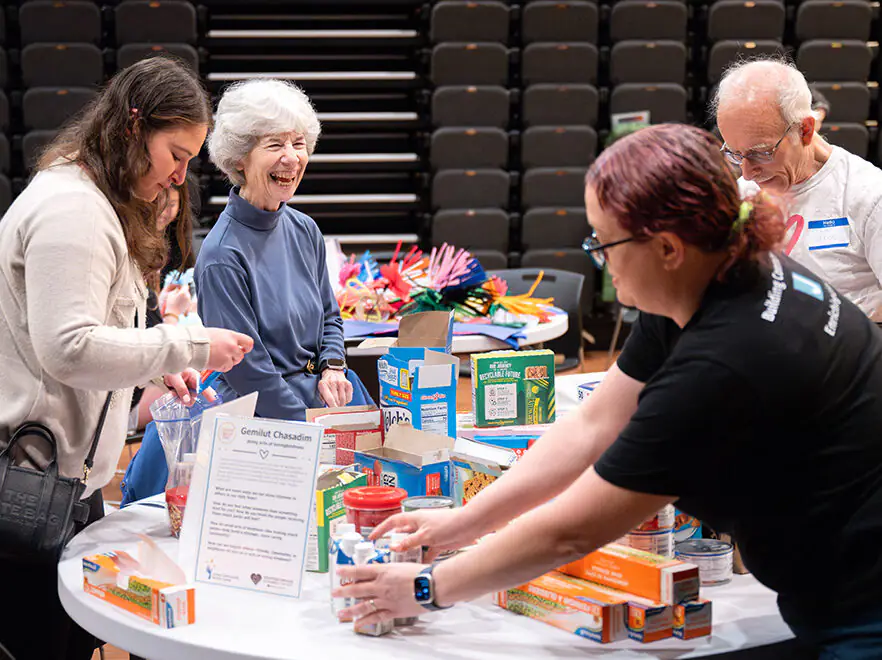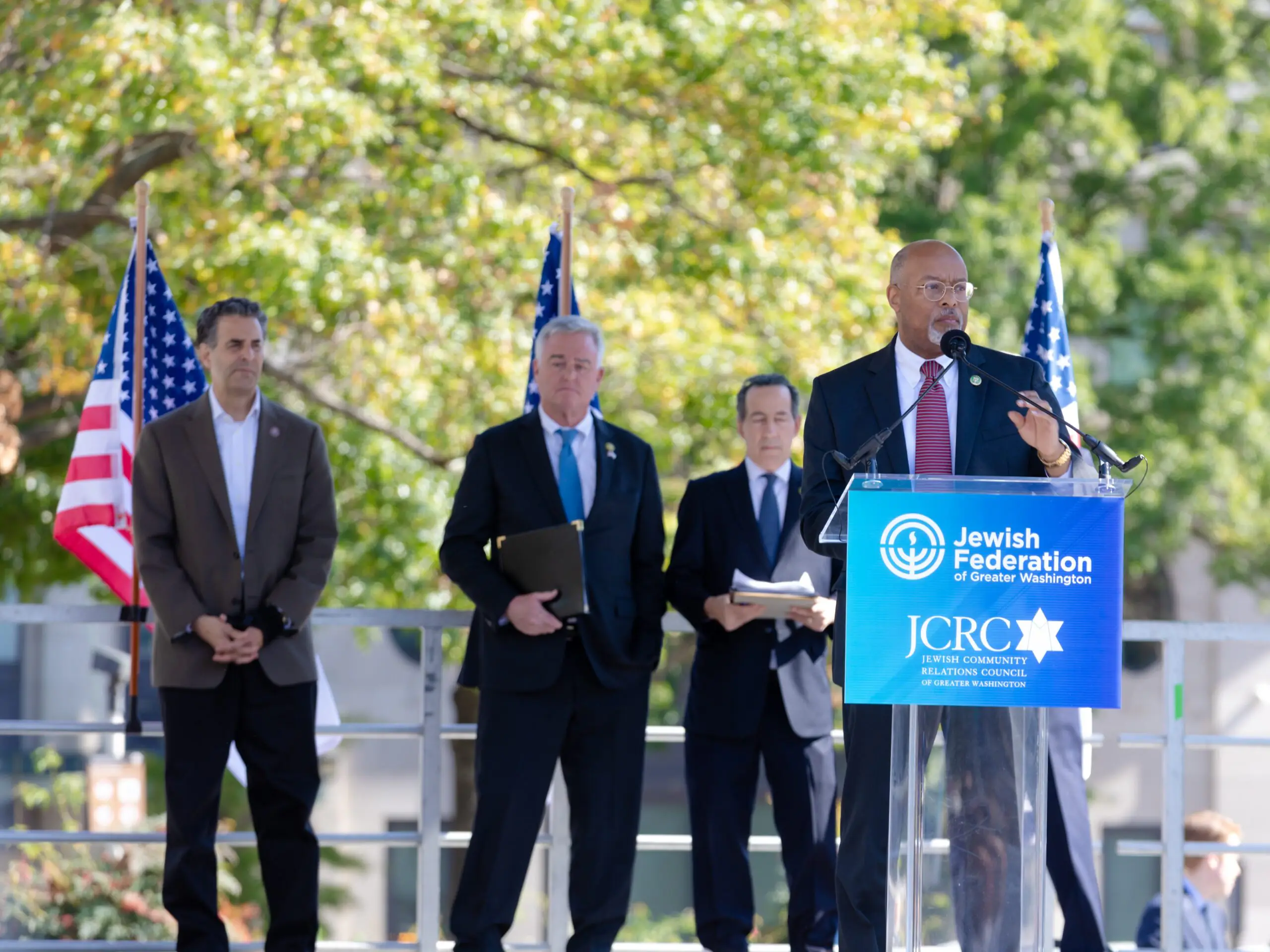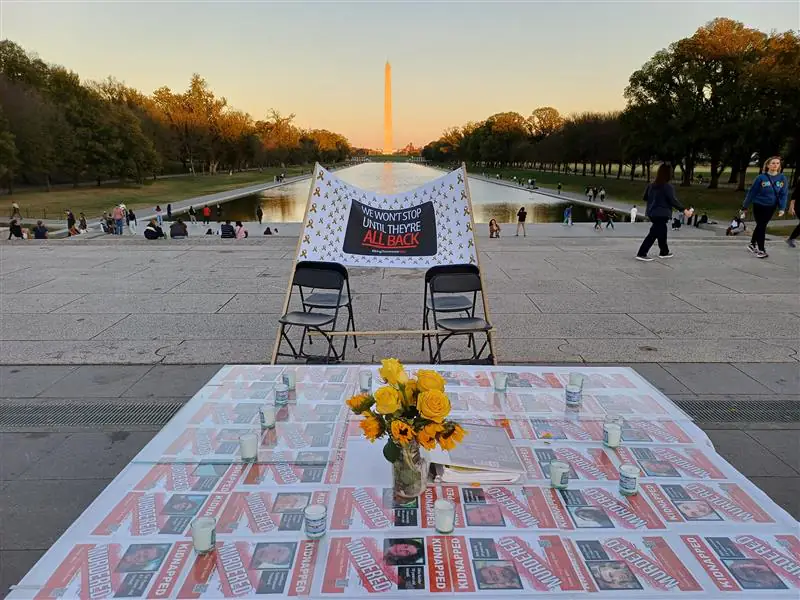Building a Stronger Jewish Future
DonateThe Jewish Federation of Greater Washington
Inspiring a Strong, Connected Jewish Community
Across DC, Northern Virginia, and suburban Maryland, we bring people, organizations, and resources together to take on our community’s biggest challenges. As a hub for bold ideas and collective action, we empower Jewish Greater Washington to imagine what’s possible and shape what’s next.
We’re building a vibrant Jewish future—rooted in care, belonging, and bold purpose. A future where every person feels seen and supported. Where Jewish learning thrives, Jewish peoplehood and Israel are embraced, and our values come to life in the ways we lead, give, and show up for one another.
What We're Focused on Right Now

Double the Impact!
Because of you, Jewish life is thriving with strength and connection. And now, every gift is doubled up to $50,000 when you give by October 31. Give now to double the joy, security, and connection we create together.
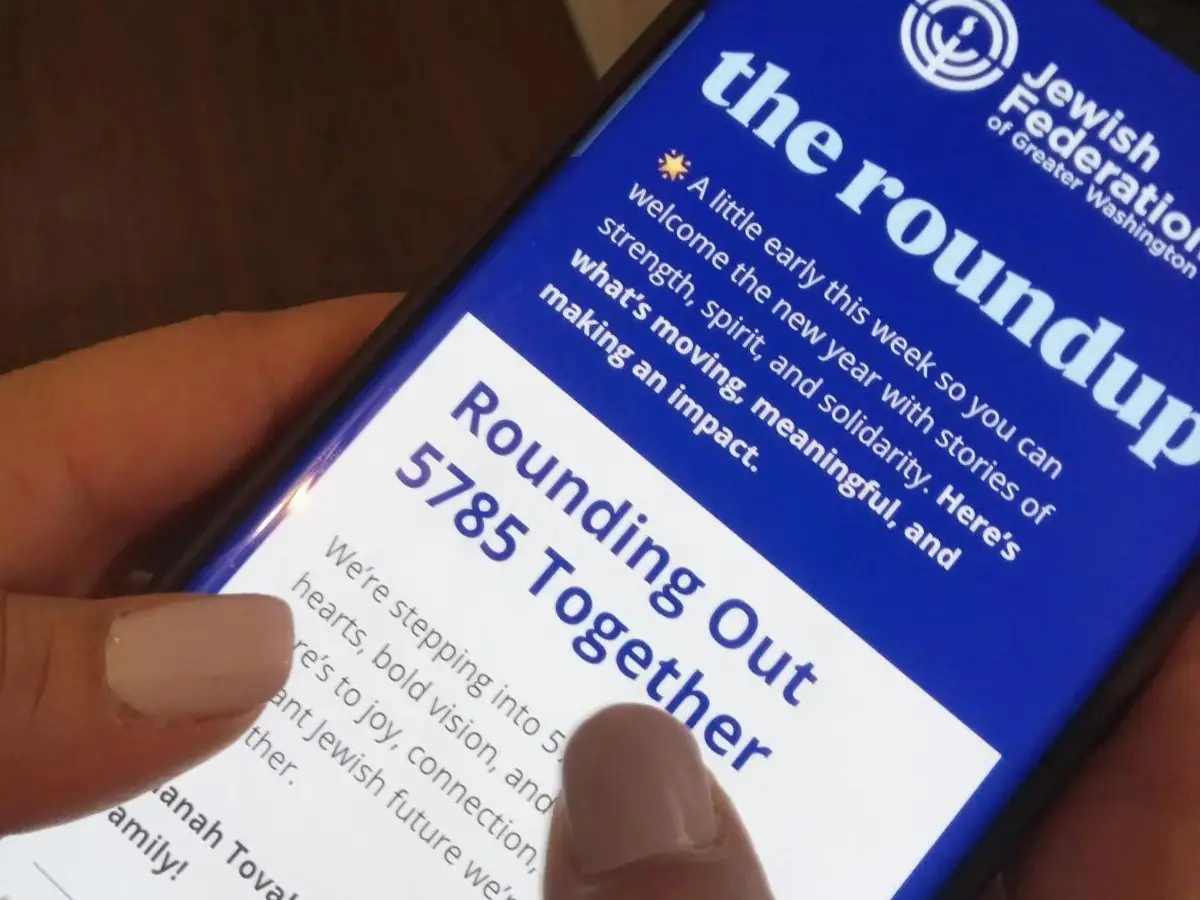
Catch the Roundup
Whether you’re planning your weekend, exploring ways to give back, or catching up on community news, you’ll find something meaningful here.
Stronger Together: Our Impact in Action
Ongoing Initiatives

Empowering leadership
We’re dedicated to identifying and nurturing Jewish leaders across Greater Washington, providing a variety of experiences to help them grow and lead.

Securing our community
Through expert assessments, grant support, training, and trusted partnerships, JShield, our community security initiative, works hand-in-hand with Jewish organizations across Greater Washington to build a culture of security rooted in care and confidence.

Combating antisemitism
Together with community leaders, partner organizations, and you, we are transforming fear into focus, and frustration into forward momentum.
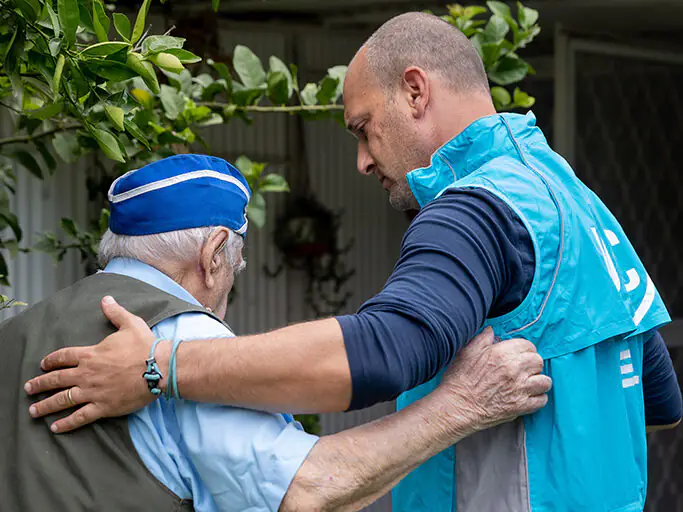
Responding to crisis
Whether it’s a natural disaster, local challenge, or geopolitical emergency, we’re ready to respond quickly, thoughtfully, and with care, clarity, and action.
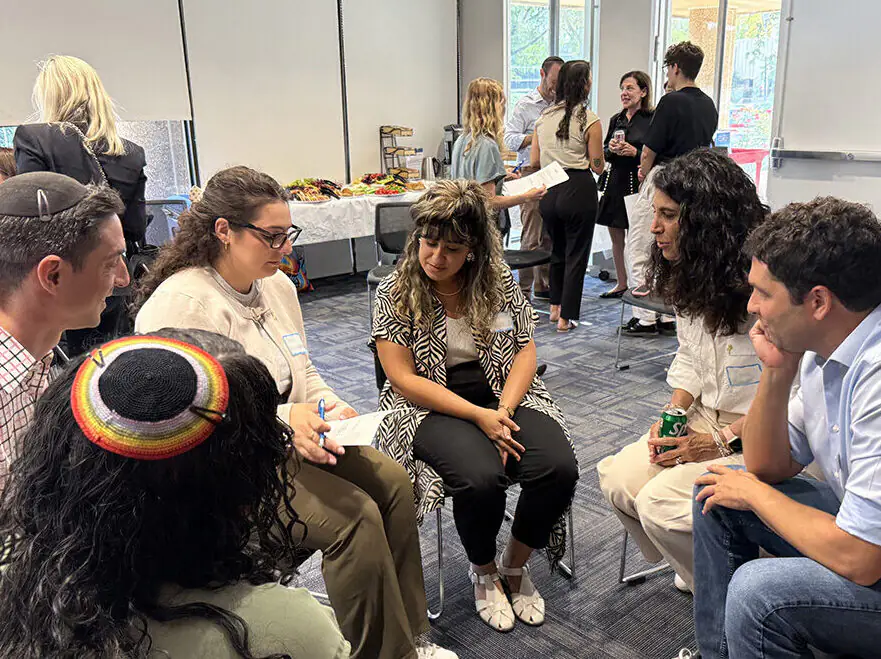
Connecting with Israel
Through our Community Shlichim and Hands-On Israel programs, we’re proud to create opportunities for our community to connect with Israel on a deeper level—understanding its challenges and building lasting relationships with Israelis from all walks of life.
Upcoming Events

-
Virtual
-
Monday, October 6
A virtual volunteering initiative that pairs English speakers with Ukrainians for one-on-one conversation practice and cultural exchange.

-
Tuesday, October 21
Temple Shalom is hosting the URJ’s regional Introduction to Judaism course. Introduction to Judaism is for anyone who wants to gain a deeper understanding of Jewish life through a Reform lens […]

-
McLean, VA
-
Thursday, October 23
Join Abby Cherner, VP of Women’s Philanthropy, and Sophie Buslik, Assistant VP of Women’s Philanthropy, for a listening tour across Greater Washington to get to know each other better, hear what you […]

-
Virtual
-
Thursday, October 23
A weekly gathering that explores how the lessons of the Torah shape our lives today and guide us through the challenges and opportunities of the modern world.

-
Bender JCC of Greater Washington
-
Thursday, October 23
Featured is the wonderful & witty Dotan, an Israeli comedian and producer, performing comedy shows throughout the U.S., Canada, Europe, and Israel.

-
Across Greater Washington
-
Friday, October 24
Connect in community and learn together with others who identify as women.
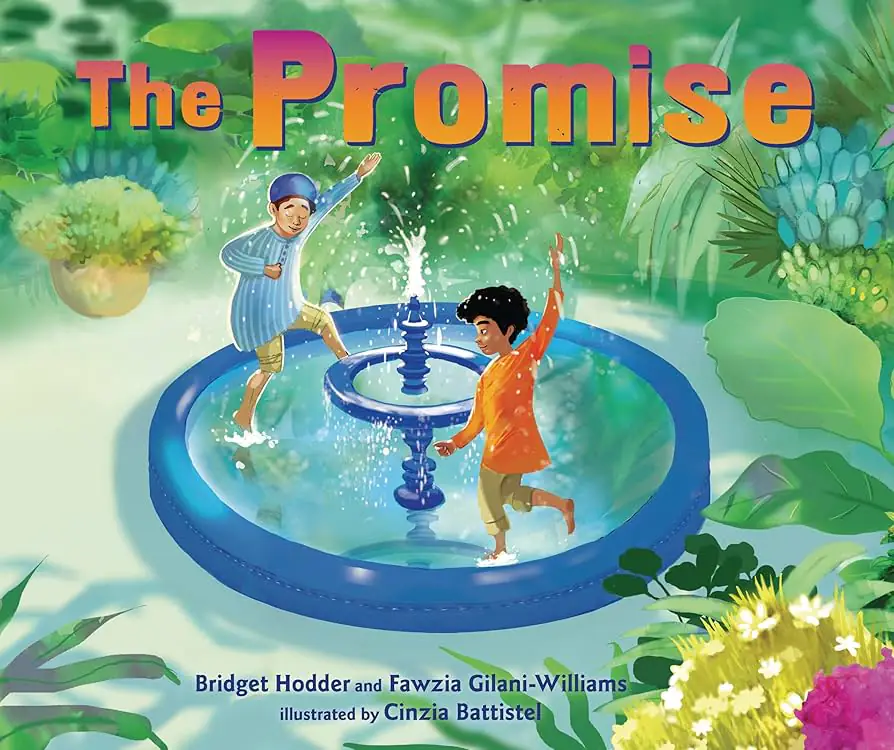
-
Capital Jewish Museum
-
Saturday, October 25
What kinds of things can grow in a garden? Is it just flowers and vegetables? What about friendship? What about bravery? Join us as we read “The Promise” with guest […]
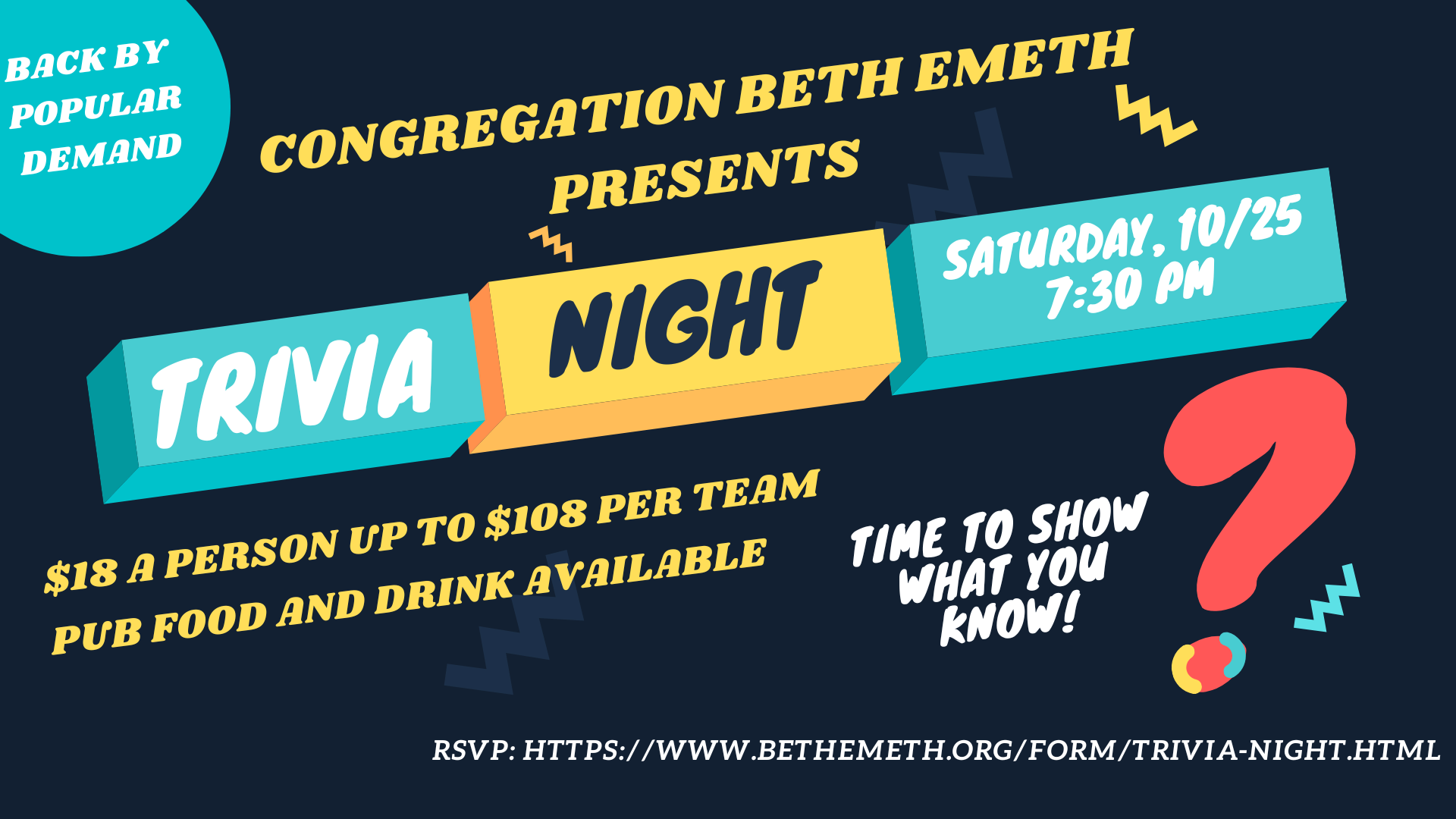
-
Congregation Beth Emeth
-
Saturday, October 25
Trivia Buffs! Join us on October 25 for the return of brain-teasing fun at CBE’s Pub Trivia Night. Grab your friends, family, or fellow congregants and assemble your dream team of trivia enthusiasts. […]

-
Capital Jewish Museum
-
Sunday, October 26
The tour includes an introduction, What is Jewish Washington?, the Historic Sanctuary (1876) with a film about early Jewish Washington, and a chance to connect, reflect, and act.
